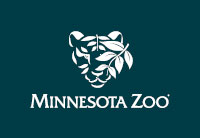June 20-26 is National Pollinator week! Did you know that three-fourths of the world’s flowering plants and about 35 percent of the world’s food crops depend on animal pollinators to reproduce? Some scientists estimate that one out of every three bites of food we eat exists because of animal pollinators like bees, butterflies and moths, birds and bats, and beetles and other insects. But many pollinators have experienced declines due to habitat loss, disease, parasites, and environmental contaminants.
At the Minnesota Zoo, our conservation scientists are hard at work trying to understand why many of our state’s prairie butterflies continue to disappear. And behind-the-scenes, we’re taking in some of the rarest species – like the Dakota skipper and Poweshiek skipperling – and trying to save them from extinction. Our aim is to restore these pollinators in their native prairie habitats.
During National Pollinator Week and beyond, you can join us in helping Minnesota’s butterflies, bees, and more! Take our Pollinator Challenge by planting a pollinator garden, photographing the pollinators that visit it, and posting your favorite photos on social media using the hashtag #Plant4Pollinators. Learn more and join the fun at http://mnzoo.org/conservation/act-wildlife/minnesota-zoos-pollinator-challenge/.
Here are some more great ways you can participate in National Pollinator Week!
Sponsor a butterfly! You’ll receive a packet of butterfly-friendly seeds for your garden, an animal sponsorship certificate, and more!
Support our Prairie Butterfly Conservation Program! Your gift helps us save Minnesota’s endangered butterflies and their rich habitats.









Get Social